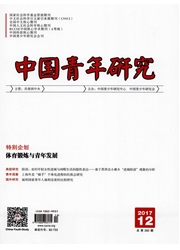

 中文摘要:
中文摘要:
代际收入流动衡量的是个人收入在多大程度上由其父辈的收入决定,反映了一个社会的机会平等程度。教育是父辈对子辈人力资本投资的主要方式,在代际收入流动过程中起了重要作用。根据Becker模型计算了教育对代际收入弹性的贡献率,结果表明,我国的教育收益率和边际教育消费支出均高于主要发达国家,因此我国教育对收入代际转移的贡献率也更高,其政策涵义是提高政府投资在个体人力资本投资中的比重,促进教育资源的公平分配。
 英文摘要:
英文摘要:
Intergenerational mobility of income can be used to study that the degree of income status transmission from one generation to the next, and it reflects the equality of opportunity in a society. Education is the major in-vestment channel of parents on children and plays an important role in intergenerational mobility of income. Becker model is used to calculate the contribution of education to intergenerational income elasticity. The empirical results show that the return to education and marginal education expenditure in China is higher than main developed coun- tries, so the contribution of education to transmission is much higher. The policy implication is to improve the pro-portion of government in individual human capital accumulation and to equalize public resources distribution.
 同期刊论文项目
同期刊论文项目
 同项目期刊论文
同项目期刊论文
 期刊信息
期刊信息
